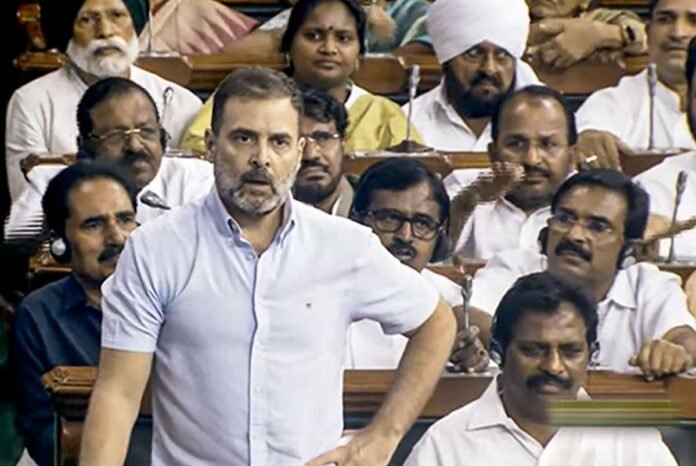Recently, the Lok Sabha witnessed a contentious episode when several portions of Rahul Gandhi’s speech were expunged. This incident has sparked widespread debate and criticism across the political spectrum, highlighting deeper issues of parliamentary conduct and freedom of expression.
Rahul Gandhi, a prominent leader of the Indian National Congress and former president of the party, took the floor to address crucial issues facing the nation. His speech, delivered with characteristic fervor, touched upon sensitive topics ranging from economic policy to social justice. However, amidst the impassioned delivery, certain remarks sparked objections from members across party lines.
The expungement of Rahul Gandhi’s remarks raises fundamental questions about the limits of parliamentary speech. The rules governing parliamentary conduct aim to maintain order and dignity within the House. Statements deemed derogatory, unparliamentary, or against the spirit of debate can be expunged to preserve the integrity of proceedings. Critics argue that while decorum is essential, stifling legitimate criticism undermines the essence of democracy.
One of the contentious issues was Rahul Gandhi’s remarks regarding a government policy initiative. His critique, although impassioned, was met with objections on grounds of factual accuracy and relevance. This incident underscores the fine line between political rhetoric and factual accountability in parliamentary discourse. Supporters of Gandhi argue that political leaders should have the liberty to challenge policies and decisions without fear of censorship, as it is essential for holding the government accountable.
Moreover, the expungement of Rahul Gandhi’s speech has sparked accusations of selective enforcement of parliamentary rules. Critics point to instances where similar remarks made by other members were not expunged, raising concerns about impartiality and fairness. The perceived inconsistency in applying rules fosters a sense of distrust and polarization within the political landscape.
The episode also sheds light on the role of parliamentary decorum in fostering constructive debate. While freedom of expression is crucial, maintaining civility and respect is equally important for meaningful discourse. The expungement serves as a reminder of the responsibility of elected representatives to uphold the dignity of the institution they represent.
Beyond the procedural aspects, Rahul Gandhi’s expunged speech has reverberated in the realm of public perception and media scrutiny. The controversy has garnered significant attention, amplifying the political stakes involved. In an era marked by instant communication and social media influence, every word uttered in Parliament carries weight beyond the chamber walls.
Critics of the expungement argue that such actions undermine transparency and accountability in governance. They contend that robust debate, even if critical or uncomfortable, is essential for a healthy democracy. By expunging remarks, they argue, the government risks appearing intolerant to dissenting voices and eroding public trust in democratic institutions.
In conclusion, the expungement of several parts of Rahul Gandhi’s speech in the Lok Sabha represents more than a procedural footnote in parliamentary history. It underscores the complex interplay between free speech, parliamentary rules, and political accountability in a vibrant democracy like India. As the nation navigates these challenges, the episode serves as a poignant reminder of the delicate balance between upholding order and preserving the spirit of democratic discourse. Moving forward, it is imperative for policymakers to engage in meaningful dialogue on refining parliamentary practices to uphold both decorum and democratic values.
The expungement of Rahul Gandhi’s remarks in the Lok Sabha has ignited a broader conversation about parliamentary conduct and freedom of expression, resonating far beyond the walls of the chamber. As India continues to evolve politically and socially, the incident serves as a crucial checkpoint in assessing the maturity of its democratic institutions and their ability to navigate the complexities of modern governance.

